Shūji Sano
출생 : 1912-10-20, Tokyo, Japan
사망 : 1978-12-21

Takagi
A model must cope with the stress of fame after a marketing executive transforms her into a sports celebrity.
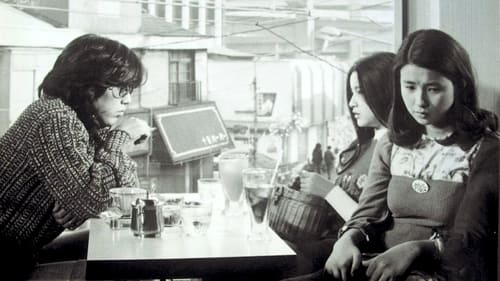
Drama about young people in the Japanese rock scene starring the lead singer of Japanese rock band The Tigers (1966-1971, 1981-1983).

Coming of age/high school sports drama.

A film about the construction of the Kasumigaseki Building, the first high-rise building in Japan.

Hirata
Kitagawa is an engineer charged with construction of a gigantic tunnel through the Japan Alps for the transportation of equipment in the building of the massive Kurobe Dam. The tunnel crosses an earthquake fault and Kitagawa is beleaguered not only by cave-ins and flooding, but by strife between management and the workers's union. Adding to Kitagawa's stress is the knowledge that as his attention is pulled inexorably toward the tunnel construction, his youngest daughter is dying from leukemia.

Hiroshi Yamamura
Japanese youth film.

Jiro's father
Easily bored, but still innocent and naive countryside girl (Mako Midori) discovers partying in Tokyo is a ton of fun. Yakuza-to-be (Ichiro Araki) is an acquaintance who tries to rape her, and the typically bland but very-good-here (Hayato Tani) the first boyfriend. Director Yasuo Furuhata (his first picture) lets his camera roll in trendy clubs amongst partying youngsters in a way that could've been out of 60s England or a Nikkatsu film if it wasn't shadowed by dated 60s Toei conservatism.The resulting film is a bit confused, either a rebellious youth tale chained by moral concerns, or something conceived as a morality tale trying to break free from its chains.

An uplifting drama about the bond between a group of high school seniors and their kind-hearted teacher, Mr. Yabuki. Faced with the rigors of growing up in modern times, students often look to Mr. Yabuki for advice and guidance. But when Mr. Yabuki’s career is threatened as a result of a false accusation from the school’s PTA, the students band together to stand up for their beloved teacher and help him to save his good reputation and job.

Japanese comedy film.

Japanese drama.
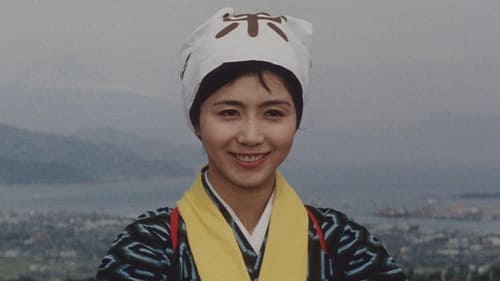
Ryosuke Mishima

Young lord Saburo Nobuyasu struggles to find comfort in life. His arranged marriage to Tokuhime, daughter of one-time family enemy Oda Nobunaga, provides little happiness. His manipulative mother adds further complications through her constant interference and attempts at defeating the Nobunaga family.

Doctor Hanamura
When a wealthy, selfish family decides to take care of an elderly hobo who collapsed near their home, they are beset by visits from his numerous friends.

The story tells of Tsuchiya, a university professor and a widower who is in love with a widow who runs a small restaurant, and his son is in love with a runaway girl who turns out to be the leader of a religious sect. Kusano is the henpecked proprietor of a rice biscuit shop who dreams of owning a bird and dog shop and his daughter is in love with a boarder, employed by the private detective agency searching for the runaway girl. The agency head has his own dream of arranging thirty marriages and has already accomplished twenty-seven. Tatsumi is a newspaper reporter who dreams of a big scoop to enable him to marry a girl TV producer and his friend a mountain climbing enthusiast who dreams of joining a Himalayan expedition but is opposed by his wife. His love of the mountains is shared by a boarder in their home and by a fishmonger's son.

Managing director
쇼난 해안의 작은 집은 사토 일가의 보금자리다. 가장 쇼이치는 도쿄의 회사에 다니는 평범한 샐러리맨이고, 아내 야스코는 아들과 가사를 돌보기에 바쁘다. 집 대출금을 마련한다는 명목으로 쇼이치는 회사 부장에게 여름 동안 집을 빌려 주고, 야스코는 아들을 데리고 가루이자와의 친정으로 간다. 다사다난했던 여름이 지나고, 쇼난의 집으로 돌아온 사토 일가의 생활은 언제나처럼 계속된다.

Alongside Tokyo's Sumida River is a ragpickers' settlement known as Ant Village. One night, a young Catholic girl, Satoko Kitahara, who has been baptized under the name of Maria, comes to offer her services. However, Ant Village is not just an ordinary vagrants' community but a fine autonomous organization, and as the municipal authorities have long been demanding that the people of Ant Village leave the site, Satoko is utilized to publicize the Village and win public sympathy. While being utilized in this manner, Satoko is nevertheless glad to be able to help the people of Ant Village, especially the children, and when the summer vacation comes she decides to take the children on an excursion to Hakone. To raise funds for this purpose she becomes a rag-picker herself.

The story follows Oshino, a geisha who is trying to start a new life with a lover who is a painter. However, her past filled with debts and pimps catches up to her.
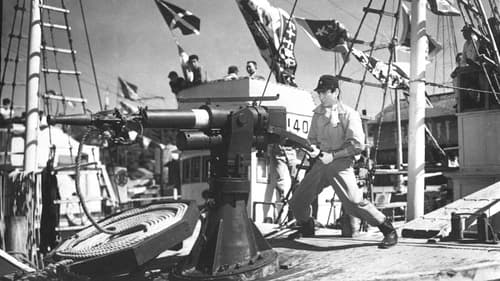
Captain Gondo
A film about the rivalry between Captain Gondo and the harpooner Yosuke Yamagami, working on the best whaling ship Hayabusa Maru. One day they will have to face a giant, monstrous whale.

A humble page fathers a child by the daughter of a clan official and is banished. Years later, the child, now a stable boy, is reunited with his father, but feudal codes threaten their happiness. Uchida’s poignant masterpiece condemns the inflexible class system and launches an indictment of values that favor symbolic objects over human life. The film’s focus is on character rather than swordplay, and charged performances—especially child actor Motoharu Ueki—add to the emotional power.

Shochiku Production on typhoon

Shida Bunzo
Poor social conditions badly affect the relationship between a married couple, when the husband, who is desperately searching for work, fails to notice the terrible sacrifices made by his wife when she accepts a job at a local inn.

Shinsaku was once a renowned playwright, has now been left behind by journalism and is living a lethargic life in Oiso. His family is concerned with Shinsaku regaining his old vigor as a writer and Sakie, his daughter, finding a suitable match, while the family is struggling with the losses of war.

Mr. Shinohara
A young girl moves to Tokyo and endures the rivalries between other high school girls of varying cultural and economic backgrounds.
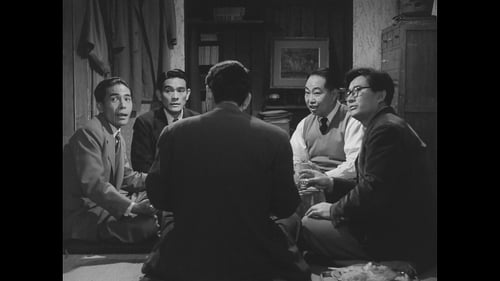
Ryotaro Namiki
료타로와 후미코 부부는 요즘 부쩍 다투는 일이 많아졌다. 아내가 읽지도 않은 신문의 요리란을 먼저 자르는 것이나, 남편이 혼자 주말에 외출하는 것 등 서로에게 서운함을 느끼는 일이 계속 벌어지는 것이다. 그런데 옆집에 젊은 부부인 넨키치와 히나코가 이사 오면서 자신들의 관계를 돌아볼 기회가 생긴다.

Takasu
도심에 자리한 어느 큰 절, 이곳에는 어떤 사정으로 인해 절에서 오랫동안 자란 치즈루, 아야코 세츠코 세 자매가 있다. 서로 다른 개성을 가진 세 자매는 절의 일을 돕거나 자신의 미래를 준비하며 성실히 생활하고, 그러는 동안 절을 방문하는 사람들과 다양한 만남을 가진다. 오즈 야스지로 감독이 각본에 참여했다.

Three young women make a suicide pact, but they grow to have a better understanding of themselves.
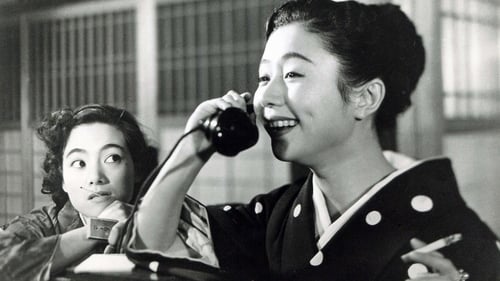
Mito
An Inn at Osaka, rarely seen outside Japan, follows the story of an insurance company executive from Tokyo, Mr. Mito, who is demoted to the Osaka office. He takes a room at a small inn and tries to rebuild his life. Notable for its exquisite framing and cinematography, An Inn at Osaka allows its complicated plotlines to disappear behind the minutiae of penury and humiliation that Mito and others suffer during the post-war economic and social reconstruction.
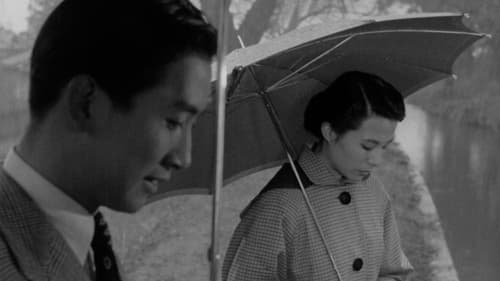
번역일로 먹고 사는 마유미는 결혼을 하지 않아 주위 사람들의 걱정을 산다. 마유미는 결혼 생각이 없다며 대답을 피하지만 사실 그는 오랫동안 한 여성만을 좋아하고 있다. 한편, 마유미는 우연히 만난 친구에게 새로운 일을 제안 받는다. 바로 미군과 사귀는 여성들에게 영어 편지를 대신 써주는 일이다. 기노시타 게이스케 감독이 각본을 썼으며, 다나카 기누요도 마유미의 고객으로 잠시 출연한다. 1954년 칸영화제 경쟁부문 상영.

Yusaku Araki
It chronicles the experiences of a neighbourhood doctor, whose taste for tonkatsu (a popular Japanese dish, similar to a pork schnitzel) earns him the nickname ‘the pork cutlet prince’ (‘Tonkatsu Taisho’, the film’s Japanese title) from the affectionate residents of the tenement in which he lives. When a local hospital, run by a female doctor, plans to expand, the future of the tenement is called into question.
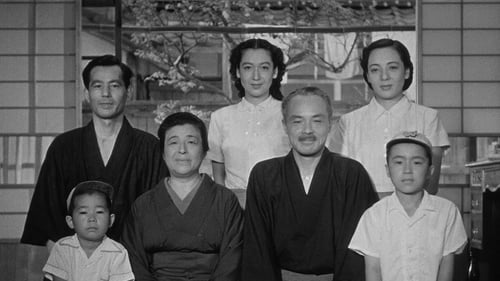
Sotaro Satake
혼기에 찬 노리코는 조건이 좋은 혼처를 거부하고 부모 형제와 상의 없이 오빠의 친구이자 아이 딸린 홀아비 켄이치와 결혼하겠다고 선언한다. 갑작스런 노리코의 태도에 가족들은 당황한다.
오즈 야스지로의 대다수 영화들이 산업화와 서구화에 따른 가정의 해체에 관한 것이듯 이 작품도 딸의 결혼으로 대가족이 해체된다는 기본 골격을 따라 몇 개의 에피소드로 연결 된 홈 드라마이다. “스토리 자체보다 더욱 깊은 의미를 지닌 ‘윤회’라든가 ‘무상’이라든가 하는 것을 묘사하고 싶었다”는 오즈의 언급처럼 이 작품에서 스토리나 플롯이 중요한 기능을 하지 않음은 명백하게 드러난다. 일상적인 삶에 대한 세심한 탐구, 이야기의 과감한 생략, 시공간의 독특한 사용, 계속해서 변하는 행동의 리듬을 통해 오즈 특유의 소시민적 관점이 투영된 작품이다.
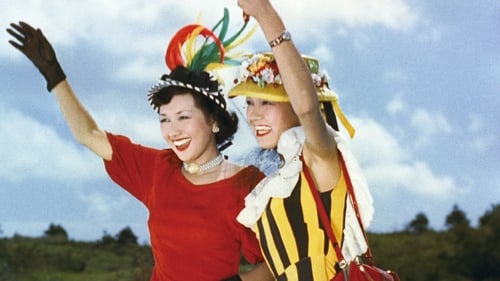
Haruo Taguchi
소와 말들이 뛰노는 평화롭고 한적한 산골 마을. 어릴 적 가출을 한 뒤 도쿄에서 스트립퍼로 일하고 있는 카르멘이란 예명의 오킨이 자칭 금의환향을 하겠다는 편지를 보내왔다. 오킨은 자신의 직업을 '정말로' 예술이라고 믿고 있는, 머리가 약간 모자라는 여자다. 오킨의 언니는 그 편지를 들고 가서 아버지께 보이며 오킨의 금의환향(?)을 허락해 줄 것을 부탁하지만 아버지의 반응은 냉담하다. 결국 남편과 상의를 한 끝에, '일본은 문화국가'임을, 그래서 응당 예술가는 어떤 일이 있어도 대우해 주어야 한다고 굳게 믿고 있는 교장 선생에게 아버지를 설득시켜 줄 것을 부탁한다. 우여곡절 끝에 귀향을 허락 받은 오킨. 산골 마을에서는 꿈도 꾸지 못할 파격적인 모습으로 금의환향을 하게 되고, 그런 오킨과 그 동료 마야의 모습은 순박한 산골 마을 사람에게 일대 파문을 일으키며 갖가지 해프닝이 벌이지게 된다. 한편, 돈이 되는 일이라면 물불을 가리지 않는 탐욕스러운 사업가인 마르쥬는 마을 사람들을 상대로 한 오킨의 스트립쇼를 계획하게 되는데...

Also known as Crazy Uproar.

Melodrama that lovingly portrays working people who live in poverty but righteously. Kosaburo Yoshimura, the master of "women's films," cast Yasuko Fujita, an unknown newcomer, in the leading role for this masterpiece about the joy of love. The Yoshikawa family is a typical small town family. With only the father's and daughter's salaries to support the family's six members, life is not easy.

Keizo Ishizu
케이죠는 좋은 집안의 딸 야스코를 중매로 만나 데이트를 즐긴다. 케이죠는 발레를, 야스코는 복싱 관람을 경험하며 서로에 대한 흥미를 키워가지만, 점차 밝혀지는 야스코 집안의 상황 탓에 갈등이 벌어진다.

Shuichi Amamiya
전쟁 직후의 일본 사회를 배경으로 여인의 수난을 그린 작품. 미조구치 겐지의 <밤의 여인들>에서 창부 역할을 훌륭히 소화해 낸 인기 여배우 다나카 기누요가 호연했다. 전작인 <셋방살이의 기록>이 도시 인정물의 연장선상의 희극적인 작품이었다면, <바람속의 암탉>은 패전 후의 생활고와 가혹한 현실을 다룬 작품으로 가족간의 갈등을 주로 다루었던 오즈의 작품 세계에서 전후 일본사회에서 겪는 여성의 수난을 다루었다는 점에서 특기할 만한 작품이다. 전후 일본의 동떨어진 비현실적인 묘사로 동시대의 비평가들로부터 비판의 대상이 되기도 했던 작품이지만, 오즈의 후기 영화미학으로 가는 과도기적인 작품이다. 전쟁은 끝났지만 전쟁에 나간 남편 슈이치는 돌아오지 않고 소식도 없다. 남편 없이 어렵게 가정을 꾸려가던 도키코는 아이의 병원비를 벌기 위해 몸을 판다. 그러던 중 슈이치가 집으로 돌아오고, 아내는 남편에게 매춘 사실을 고백하는데..

Waiting woman

横山(楽団員)

Japanese war movie.

Captain
Hisshoka is a 1945 Drama film directed by four Japanese directors.

Kaneko
후쿠오카의 전당포집 아들 도모노조는 19세 때 왕정 복고의 전화를 체험한다. 30년 후, 청일전쟁의 발발을 눈앞에 두고 나라를 걱정하던 노모노조는 협심증으로 세상을 떠난다. 그의 아들 도모히코는 1904년 하녀 와카와 결혼하고, 곧 러일전쟁이 일어난다. 세월이 흘러 또 다시 일본은 전쟁의 소용돌이에 뛰어들고, 와카는 전장에 나간 아들을 쫓아 군부대를 따라간다.

A nurse's tale of self-sacrifice during wartime. The title is borrowed from a patriotic song made popular by singer Hamako Watanabe during the Second Sino-Japanese War.

Pretty Oshige is deceived by her first love. After this, she lives a hard lifestyle, working at a number of jobs. Her only pleasure is her nephew, who eventually becomes a merchant marine. When Oshige meets her old love ten years later, she is able to forgive him and even thank him for the path her life has taken.

An older sister and brother (Mieko Takamine and Masayoshi Otsuka) come to visit their grandfather (Takeshi Sakamoto) who lives deep in the mountains. As for their parents, father was serving in the South Seas and mother died of illness on her way home. So, the brother, who is still young, will live alone with his grandfather whilst the sister goes away to study to become a teacher.
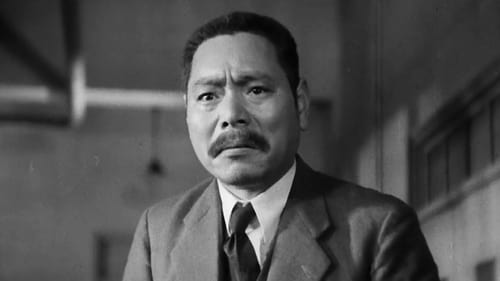
Ryohei, the son
가난한 교사인 호리카와 슈헤이는 돈도 미래에 대한 희망도 없는 현실이다. 그럼에도 불구하고 그의 아들 료헤이의 성공을 위하여 온 열정과 생을 바치는데...

A hostile Chinese nurse (Yamaguchi) who works in an orphanage is won over by the care and commitment of the Japanese doctor (Sano) who treats her wards. Disease outbreaks and family obligations, however, threaten to torpedo their budding romance.

In the movies of those times, you can see young boys in the company scene often. Those boys were called kyuji (給仕), which means “waiter” literally. They are doing odd jobs in the company including serving tea, ushering visitors, buying tobacco, etc. Ordering lunch for the individual requests was also an important job. Those boys were hired often as soon as they graduated from elementary school.

This film was mainly shot in the Japanese skiing resort Hokkaido in 1937-38 and was intended to create support for the coming winter olympics of 1940 in Japan which however were cancelled because of the Japanese-Chinese war. A Japanese production, it was nevertheless made with German involvement in the form of skiing champion Sepp Rist and celebrated cinematographer Richard Angst (who also contributed to the script). Both had regularly worked with the inventor of the mountain film genre, Dr. Arnold Fanck, who had helmed the German-Japanese co-production "Die Tochter des Samurai", also shot by Angst, the year before. Angst apparently stayed in Japan until mid-1939 when he returned to Germany, carrying this film with him. Angst submitted it to the German censors later that year, but for reasons unknown to me it took three more years before the film was finally shown in Germany under the name "Das heilige Ziel" (The Holy Aim). (Karargara)

Shigeo Tanikawa
Shigeo is an aspiring writer living with his girl friend Minako and hoping for success and a better tomorrow every day. Both live on what Minako earns from working in a café. Shigeo is not happy with the situation and neither is his family who do not approve of Minako. Especially his uncle tries to convince him to leave Minako, even using his influence behind the scenes. Things start to change when Shigeo's sister pays the young couple a visit, being the first member of Shigeo's family to actually get to know Minako in person.

A man and his girlfriend work for a cosmetics company, but would like to open their own store. The company is planning to send someone to Paris for special training and the man tries to get the general manager to send his girlfriend since this training would help them to start their own business. The general manager selects another woman and the trouble begins.
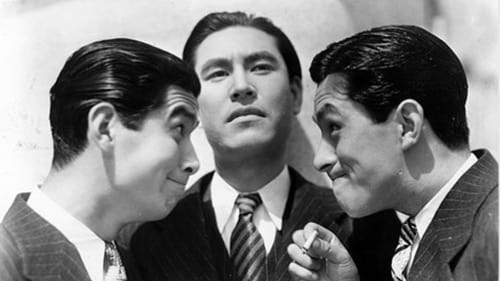
Shûji Kamura
Three men vying for the same job end up chasing the same girl in this comedy-drama from noted Japanese director Yasujiro Shimazu.

Kyôsuke
Yuki is a young, single mother supporting herself and her son, Haru, with a job as a bar hostess.

Naomichi
A penniless orphan loses the woman he loves, when her family arranges a marriage to a wealthy playboy. He believes she was blinded by greed, and becomes a miser.

Seki
유명한 스포츠 선수가 군 복무 중 아름답고 젊은 음악가를 만나게 된다. 그녀의 아이가 병으로 앓아눕자 그는 이들을 물심양면으로 도우려고 한다.

Okada
매일 매일 되풀이 되는 일상속에서 조카 '세츠코'가 방문한다. 대학교수인 숙부와 매사에 여성스러움과 부의 상징으로 골프치기를 강요하는 숙모사이에서 '세츠코'는 일상에 변화주기를 시도한다. 골프치러간다고 거짓말을 하고 사제의 집에 가서 골프가방을 맡기고 도쿄의 술집에 들른 숙부앞에 '세츠코'는 도쿄기생이 보고싶다고 기생집에 가자고 조르는데…

Ono
Three men fall in love with the same young girl who works in a tonkatsu restaurant in the Shitamachi district of Tokyo.

Taki
Episode in the life of a composer of a popular Japanese song.

The eldest daughter of a noble family is in love with an aviator while being courted by a fellow aristocrat she thinks is a dullard. This part is told from the perspective of Akemi.








































